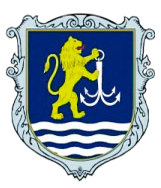ECOLOGY AND SAVINGS OF DIESEL FUEL IN THE SCIENTIFIC REVIEW OF NEW TECHNOLOGIES OF ITS COMBUSTION
Abstract
Introduction. The variety of fuels used and various mixtures, including homogenized fuel on river and sea vessels, is constantly growing in terms of the nomenclature and quality of its content, which ensures the reduction of harmful emissions and saves energy resources. An analytical study of the main directions in the use of diesel fuel with various impurities and components on ships opens up additional opportunities in finding reserves for the constantly growing requirements for the environmental improvement of modern water transport. Purpose. This article aims to show, in a certain sequence, new modern scientific approaches in the technology of processing diesel fuel and its various variations of use. Share your own research experience gained as a result of tests on river and sea vessels of fuel nano catalysts and homogenized fuels. The use of alcohols with minimal additions of diesel fuel is disclosed in detail by the tabular method according to its physical and chemical indicators and characteristics, where certain studies have been made in the priority of its use on ships. The positive aspects of the operation of Fuel Dual marine diesel engines on natural gas LPG and liquid fuel with a high level of reduction of harmful emissions into the atmosphere are shown, where CO is practically zero and the reduction of CO2 is 20 %. Results. The research work of the Danube Institute NU “OMA” in the use of WFE and Ukrainian-made fuel catalysts capable of restructuring light diesel fuel is analyzed. In the first and second cases, encouraging results were obtained in reducing harmful emissions into the atmosphere in the exhaust gases of the vessels of the Ukrainian Danube Shipping Company and sea fishing vessels of one of the Indian flotilla, where a fuel saving of 17.5 % was obtained during the fishing season in the Indian Ocean. During the testing of fuel catalysts, preliminary diagnostics of the technical condition of engines and its fuel equipment was carried out. Additionally, tests were carried out for the ultimate resource of the catalyst, which amounted to 500 tons of light diesel fuel. Conclusions. The scientific article shows the advantages and disadvantages of modern fuel use of various types of fuels and its mixture with various inclusions and components. New modern scientific directions for further research work have been identified.
Downloads
References
2. Методичні вказівки щодо розрахунку викидів забруднюючих речовин в атмосферу. Міністерство річкового флоту РСФСР, 1987. С. 2–18.
3. Биотоплива для двигателей внутреннего сгорания / В.А. Марков и др. Москва : НДЦ «Інженер» (союз НДО), 2016. 292 с.
4. Данилян А.Г. , Чимшир В.І., Найдьонов А.І. Перспективи переходу суден річкового флоту на водопаливну емульсію. Вісник Одеського національного університету. № 2 (44). Одеса, 2015. С. 121–127.
5. Данилян А.Г. Звіт про науково-дослідну роботу щодо впровадження фільтра-перетворювача палива виробництва НПФ ТОВ «Еко-Авто-Титан» для зниження шкідливих викидів в газах суднових дизелів. Дунайський інститут національного університету «ОМА», 2018. 22 с.
6. ММО Резолюція МЕРС. 203 (62). Прийнята 15 липня 2011 року (Включення правил енергоефективності для суден в Додаток V до конвенції МАРПОЛ). 24 с.
7. Вальєхо Мальдонадо П.Р., Марков В.А., Бірюков В.В. Дослідження займистості емульсій рапсового масла і етанолу. Вісник МДТУ ім. Н. Е. Баумана. Машинобудування. 2016. № 5. С. 109.
8. Луцкевич А.М., Крестьянцев А.Б. Використання ЗПГ на водному транспорті: утопія чи розумний вибір? Москва : Вид-во ФГУП «Криловський державний науковий центр», 2014. 34 с.
9. Економія палива. Виробництво вододизеля. Водно-паливної емульсії ВПЕ. 2020. URL: https://www.globecore.com.
10. Найдьонов А.І. Покращення екологічних показників річкового судна засобом гомогенізації дизельного палива : автореф. дис. … канд. техн. наук. Ізмаїл : Видавництво Дунайського інституту НУ «ОМА», 2020. С. 17.
11. Сертифікат випробувань паливного каталізатора Fuel Well «Еко-Авто-Титан», Україна, на риболовецькому судні в Індійському океані компанією Enggsol Engineering India PVT LTD. URL: http//enggsol.in/index.php.
12. Семанов Г.Н. Шкідливі викиди в атмосферу від суден на шляху до стандартизації ІМО. Санкт-Петербург : Вид-во Наука і транспорт. Морський і річковий транспорт. 2013. С. 45–47.





